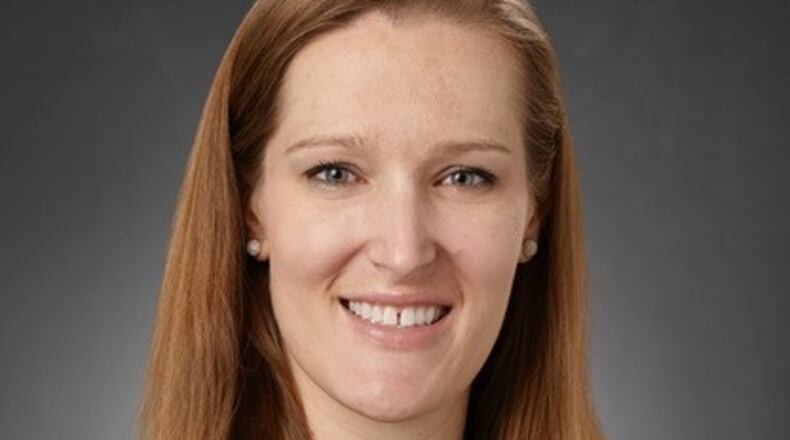Tatum explained the the BEAR implant is a collagen scaffold that goes around the ACL stump to help it regenerate itself. Tatum said the technique comes from Dr. Martha Murray of the Boston Children’s Hospital, and it received approval from the U.S. Food and Drug Administration (FDA) in December 2020. In the FDA’s authorization, it said the BEAR implant, unlike traditional reconstruction, does not require the use of harvested tendons for ACL repair.
The use of the BEAR implant became commercially available in January 2022, and Tatum said she was trained in the procedure during the spring.
“The clinical rehabilitation is a little bit slower in the beginning,” Tatum said. The first patient she used the BEAR implant with is four months out from the procedure, and she said, “He’s doing quite well.”
According to Kettering Health, the BEAR Implant has the following benefits:
- Outpatient procedure
- Reduced invasiveness compared to ACL reconstruction
- No long-term donor graft site deficits or symptoms
- Preservation of ACL mechanoreceptors to help restore joint mechanics
- Potential for decreased post-traumatic osteoarthritis
- Superior return to sport index
“As a sports medicine, fellowship-trained orthopedic surgeon, my goal is to get athletes back to their sport. Early clinical research data on the BEAR procedure showed that a less invasive procedure could successfully allow a patient to heal their own ACL tear, and I wanted to offer that to my patients,” said Tatum.
The recovery time is similar to other ACL reconstruction techniques. Tatum noted they try not to give time frames as when patients can return to sports or other similar activities as the recovery is more about how the injury is healing, but it is generally between nine and 12 months. Tatum also noted this procedure is only for patients within 50 days of tearing their ACL, and it is not for patients who have chronic issues with their ACL.
“There’s less morbidity associated with this procedure because I’m not taking grafts from somewhere else,” Tatum said.
About the Author

